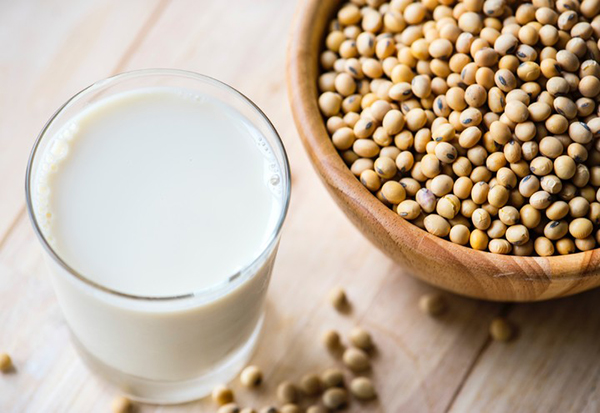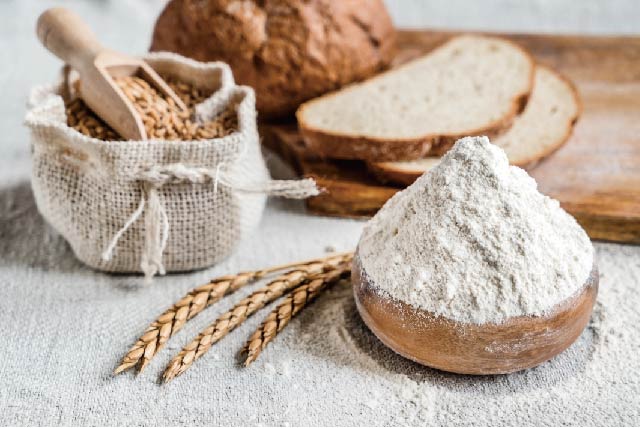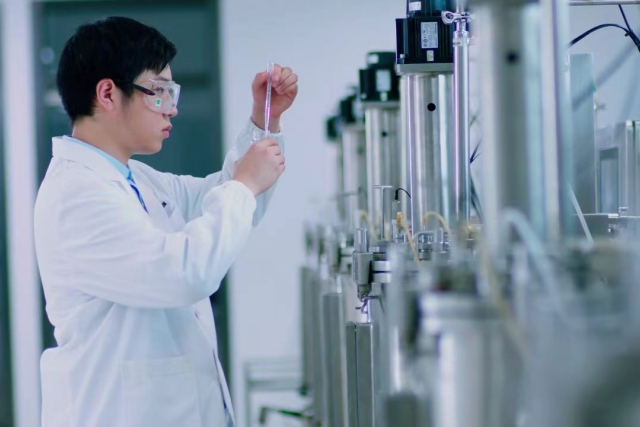-
Home > News & Events > Blog > Enzymes
June 27, 2019
By Zhan Fei
Plant proteins, which account for 70% of the world's total protein supply, are an important source of protein for human use. In recent years, more and more studies have found that plant peptides (soybean, corn, wheat, etc.) have multiple biological functions, such as anti-cancer, antihypertensive, free radical scavenging and so on. How to treat plant proteins by selecting appropriate enzyme hydrolysis to get the functions has attracted much attention.

Angel Special Enzymes focus on the utilization and functional application of protein raw materials, can provide a multiple peptide enzyme hydrolysis application solutions.
Soybean protein content is around 40%, which is the main source of plant protein, so it plays an important role in food processing industry.
The development of enzymes has become a "catalyzer" to rapidly promote a new development on functional protein products. Soybean proteins can be processed by enzymes into a variety of protein products with different properties, such as soybean peptides, modified SPI, HVP and other fields.
However, it is still facing many difficulties at present in the process of soybean proteolysis application, mainly in the following four aspects.
1. Increasing the yield of soybean proteolysis product
Product yield directly affects the utilization rate of protein raw materials and the production cost. Choosing suitable enzymes and hydrolysis conditions can effectively cut off the peptide bonds inside and at the end of the peptide chain of 7S and 11S globulin in soybean to achieve the purpose of efficient hydrolysis, and make full use of raw materials. In addition, pretreatment of raw materials before enzyme hydrolysis, selection of equipment, process control of filtration and drying after enzyme hydrolysis are also important for the yield improvement of final product.
2. Bitterness weaken in enzymatic hydrolysate
Bitterness in food cause unpleasant feeling, and in the process of soybean proteolysis, the bitter peptides often appear. During the protein hydrolysis, the spherical structure of natural soybean protein molecule was destroyed, the hydrophobic groups inside the molecule exposed, and contact with human taste buds to feel bitterness.
By choosing suitable enzymes, on the one hand, the content of bitter peptides (the molecular weight mainly range in 500-1000Da) can reduce, on the other hand, hydrophobic amino acid residues at the end of the peptide chain can be specifically removed by enzyme to weaken the bitterness. In addition, the method of weakening bitterness and enhancing flavor can also be achieved by adding specific excipients to encapsulate and cover bitterness, activated carbon adsorption and other post-treatment processes, Maillard reaction and adding flavoring substances during enzyme hydrolysis.
3. Increase the content of acid-soluble protein and small peptide in product
In the production of soybean peptide, the content of acid-soluble protein and free amino acid has a direct impact on the peptide content of the final product. Suitable selection and application of enzymes can not only ensure the high degree of protein hydrolysis and provide high acid-soluble protein content, but also effectively control the formation of free amino acids, thereby to improve the peptide content of products. In addition, pretreatment of raw materials before enzyme hydrolysis (such as soluble pretreatment of protein raw materials, reducing the particle size of protein, alleviating the excessive enzyme hydrolysis on outer proteins of granular raw materials), and post-treatment process after enzyme hydrolysis (membrane filtration and molecular sieve to remove free amino acids) can also effectively enhance the content of small peptides.
4. Appearance of enzymatic hydrolysates and final products
The appearance of soybean proteolysis products (color, clarity, foaming) is also important for the application of final products. By choosing suitable enzymes to make the product is light in color, easy to separate and clarify and not easy to foam.
About AnnzymeTM:
Annzyme is a new brand for Angel enzymes products. We are dedicated to providing customers with perfect solutions in many fields like baking, proteolysis, nucleic acid hydrolysis, starch further-processing etc, and already built highly automated production lines for enzymes and other biological products. We are committed to become the best enzymes supplier and service provider.
About Angel :
Angel Yeast Company is a high-tech listed company specializing in yeast and biotech. Product business covers Yeast and Baking, Yeast Extract-Savoury, Nutrition & Health and Biotechnology fields. It is one of the world's leading companies in the yeast industry. Angel has 12 holding subsidiaries and provides products and services for more than 150 countries and regions.
Press contact:
ANGEL YEAST CO.,LTD
Address: 168 Chengdong Avenue, Yichang, Hubei 443003, P. R.China
Tel: +86-717-6369520, 6369558
Fax: +86-717-6370680
email: aie@angelyeast.com




